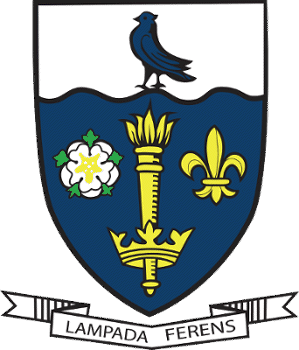These Masters-level programmes in Occupational Health, Safety and Environmental Management have been created to address the important need for up-skilling employees in advanced, specialist topics in health, safety and environmental management.

These Masters-level programmes in Occupational Health, Safety and Environmental Management have been created to address the important need for up-skilling employees in advanced, specialist topics in health, safety and environmental management.
They are the only courses of their kind created with and endorsed by NEBOSH at Masters-level, and offer those already working in industry and holding a NEBOSH diploma or BSc the chance to enhance their skills and techniques.
Studying these courses will help students identify and resolve real issues relating to them in their day-to-day roles - enhanced by the final dissertation, which is written on a research project from their own work.
The programmes are completely employer focused, using current employment to evidence achievement, and are studied part-time using e-learning modules to enable study anywhere in the UK or overseas.
There are three specific pathways that can be chosen: Occupational Health, Safety and Environmental Management; Occupational Health and Safety Management; or Environmental Management.
Each pathway can be studied either as a taught MSc or as a more research-focused MRes, making it easier to tailor the course to individual needs and study-styles.
What you'll study
For MSc students, the taught modules are taken in the first year and the first semester of the second year using the University’s e-learning environment. Once these have been completed, the last six months of the course consist of the research dissertation.
For MRes students, after completing the modules covering research methodology, the programme is followed by a 12-month, 120-credit research project on a workplace-based topic in health, safety and environmental management.
The online nature of the programme means access to a stable broadband internet connection is required for access to course materials, to communicate with University staff and undertake course assessments.
Both the MSc and MRes start with core modules relating to techniques for undertaking research: All modules are subject to availability and this list may change at any time.
Research Methods (NEBOSH Programmes)
Literature Review
Designing Research Projects
MSc students then study two core modules of their programme and one optional taught module All modules are subject to availability and this list may change at any time.
Advanced Health, Safety and Environmental Risk Management
Corporate Social Responsibility in Health, Safety and Environmental Management
Optional modules are themed around
All modules are subject to availability and this list may change at any time.
Disaster and Emergency Management
Safety Case Production and Assessment
Mental Health at Work
The University of Hull was founded in 1927 – originally as University College Hull. The foundation stone was laid the following year by the Duke of York (later King George VI, of The King's Speech fame) and we opened for business with 39 students and 14 ‘one-person’ departments.
We’ve come a long way since then. The University now has more than 16,000 students and around 2,500 employees, including more than 1,000 academic staff.
The University of Hull has been changing the way people think for 90 years. Our motto, Lampada Ferens, translates as ‘carrying the light of learning’, and over the years, we’ve shared that light with thousands of people from across the world.
As England’s 14th-oldest university, we have a proud heritage of academic excellence, and a history of creating and inspiring life-changing research. And we have no plans to stop helping to build a better world.
So ... Where Exactly Is Hull?
Never been to Hull before? That’s okay. There’s a first time for everything! Hull – or Kingston upon Hull, to use our full, proper name – sits on the northern shore of the Humber Estuary, a few miles inland from the east coast of England.
We’re part of the East Riding of Yorkshire, which means that our bustling city is a stone’s throw from some of Britain's loveliest countryside as well as expansive coastlines ... the best of all worlds.
This is a place that's inspired achievers from JRR Tolkien to Luke Campbell to extraordinary feats. So whether you’re a fan of arts or sports, or you just want to express yourself, come to Hull and let your light shine.
© 2025 coursetakers.com All Rights Reserved. Terms and Conditions of use | Privacy Policy